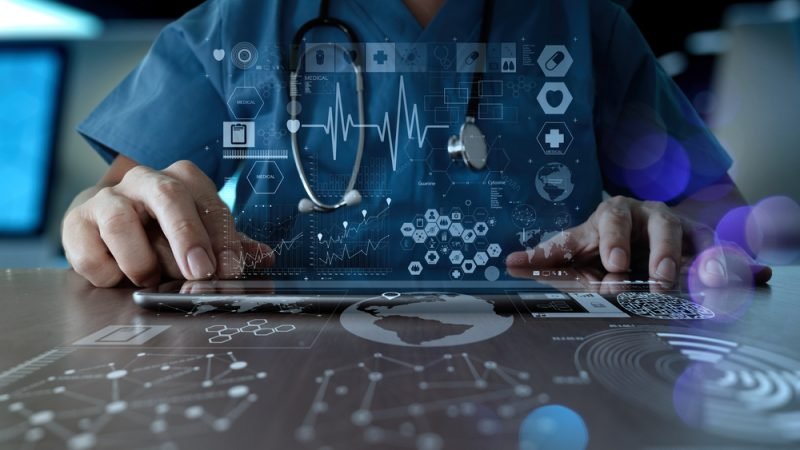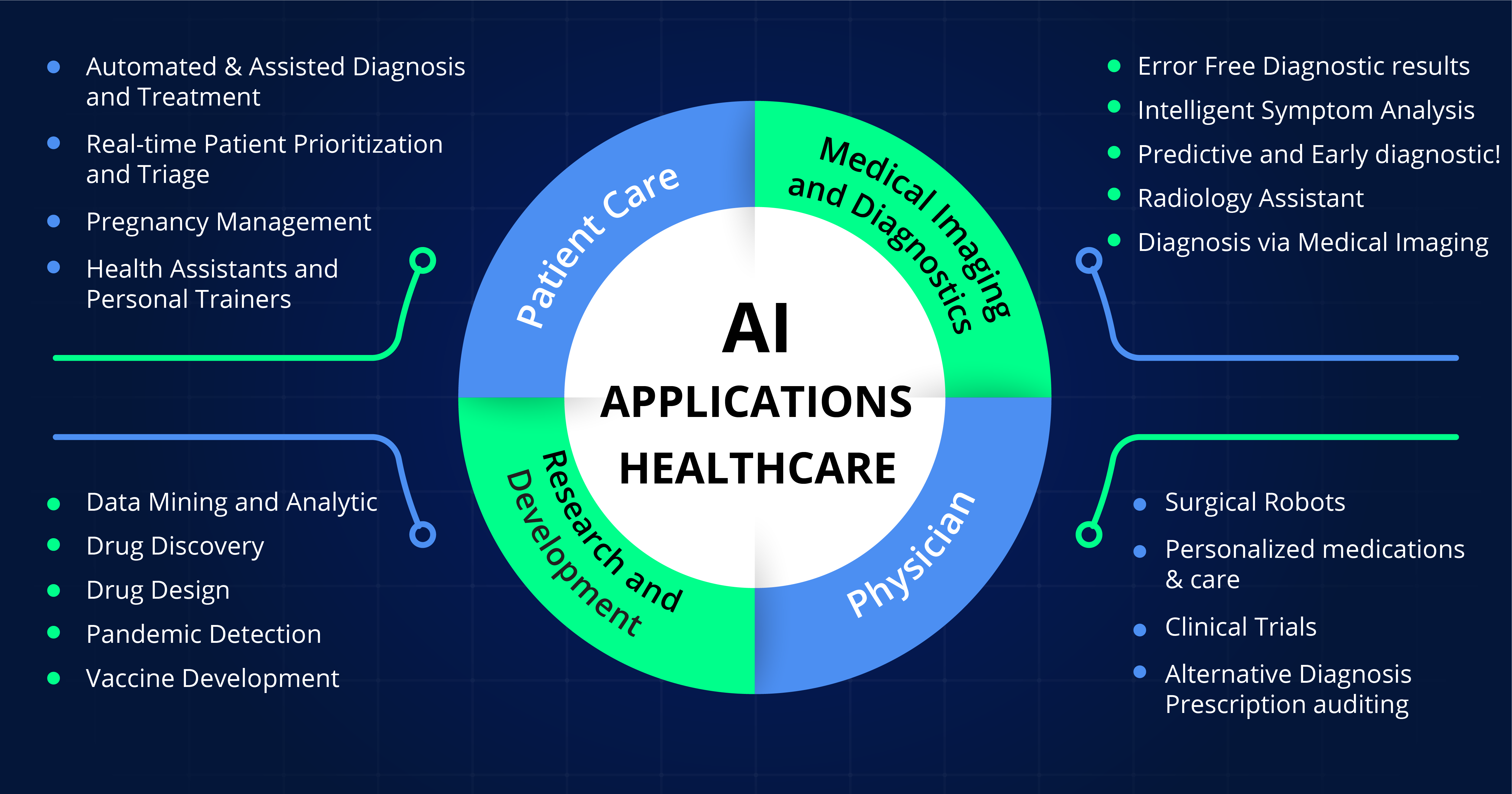The integration of Artificial Intelligence (AI) into healthcare has led to a new era in medical diagnostics, treatment planning, patient care, and disease management.
AI-driven predictive healthcare is at the forefront of this transformation, leveraging vast amounts of health data and advanced algorithms to forecast medical outcomes and personalize patient care.
TopTechCompare delves into how AI is reshaping healthcare, supported by facts, figures, data, and statistics that underscore its impact and potential-
The Foundation of AI in Healthcare
AI in healthcare utilizes machine learning, deep learning, natural language processing, and cognitive computing to analyze complex medical data. The global market for AI in healthcare was valued at approximately USD 6.7 billion in 2020 and is projected to reach USD 45.2 billion by 2026, growing at a CAGR of 44.9% during the forecast period. This growth is driven by the increasing availability of healthcare data and rapid progress in analytical techniques.
Predictive Analytics in Healthcare
Predictive healthcare employs AI to analyze medical data and predict future health outcomes. This can range from forecasting disease outbreaks, personalizing treatment plans, to predicting patient readmissions. For instance, Google’s DeepMind developed an AI system capable of predicting acute kidney injury up to 48 hours before it occurs, with an accuracy rate of over 90%.
Enhancing Diagnostic Accuracy
One of the most significant impacts of AI-driven predictive healthcare is the improvement in diagnostic accuracy. AI algorithms, trained on thousands of images, can detect diseases from radiology images with accuracy rates that sometimes surpass human radiologists. For example, an AI system developed by researchers from Stanford University demonstrated the ability to identify pneumonia from chest X-rays with a better accuracy rate than human radiologists.
Personalized Medicine
AI-driven predictive healthcare facilitates personalized medicine by analyzing patient data to tailor treatments to the individual’s genetic makeup, lifestyle, and environment. This approach is particularly beneficial in oncology, where AI algorithms can predict how different cancers will respond to various treatments, enabling more effective and customized treatment plans.
Preventive Healthcare
AI algorithms can identify risk factors and predict the likelihood of developing certain conditions, enabling preventive measures to be taken before the onset of illness. Wearable technology equipped with AI can monitor vital signs in real-time, alerting users and healthcare providers to potential health issues before they become serious. This proactive approach to healthcare can significantly reduce the burden on healthcare systems and improve patient outcomes.
Challenges and Considerations
Despite its potential, the adoption of AI-driven predictive healthcare is not without challenges. Data privacy and security are major concerns, as healthcare data is highly sensitive. Moreover, there is the issue of bias in AI algorithms, which can arise from biased training data, potentially leading to disparities in healthcare outcomes. Ensuring the transparency and explanation of AI decisions is crucial for gaining trust among healthcare providers and patients.
Future Directions
The future of AI-driven predictive healthcare is incredibly promising, with ongoing advancements in AI technologies and their applications in healthcare. The integration of genomics and AI is an emerging area that could further personalize medicine and revolutionize healthcare delivery. Additionally, the use of AI in mental health, predicting and managing mental health conditions, represents a growing area of interest.
Conclusion
AI-driven predictive healthcare is transforming the landscape of medicine, offering unprecedented opportunities for enhancing diagnostics, personalizing treatment, and shifting towards a more preventive healthcare model. Despite the challenges, the potential benefits of AI in healthcare are immense, promising to improve patient outcomes, reduce healthcare costs, and make healthcare systems more efficient. As we move forward, the continued collaboration between AI researchers, healthcare professionals, and policymakers will be essential in realizing the full potential of AI in healthcare.


Leave a Reply